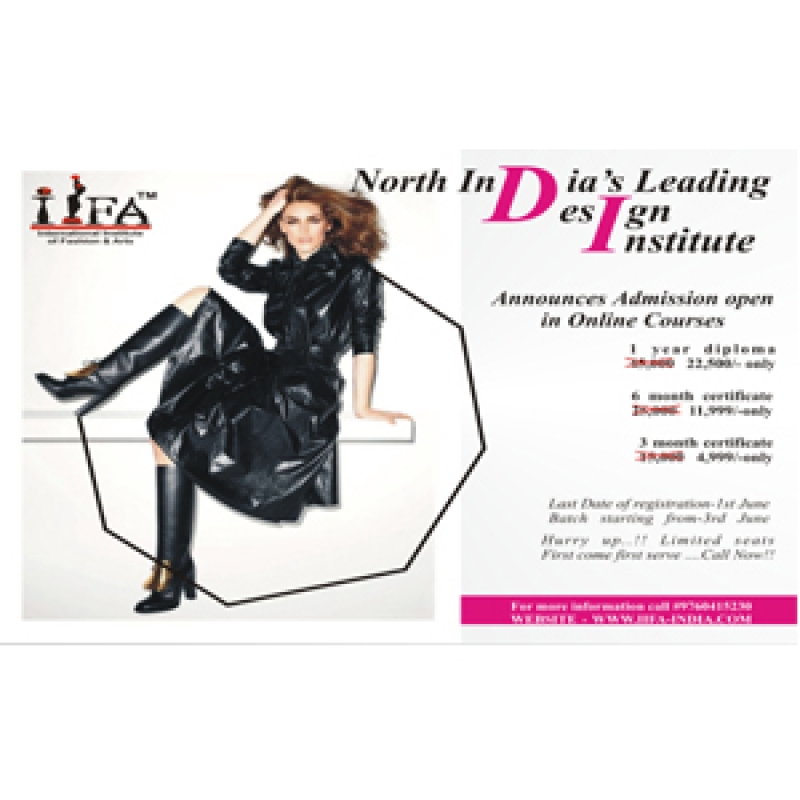Fashion design education plays a pivotal role in shaping the future of the industry by nurturing creativity, fostering innovation, and equipping students with the skills necessary to thrive in a dynamic and competitive field. From conceptualization to execution, fashion design programs provide aspiring designers with a comprehensive understanding of design principles, technical proficiency, and industry knowledge. In this article, we'll explore the importance of fashion design education in cultivating the next generation of creative talent and driving innovation within the industry.
The Foundation of Fashion Design Education
At the heart of fashion design education lies a rich tapestry of creative exploration and technical skill development. Students are introduced to fundamental design concepts such as color theory, silhouette, texture, and proportion, laying the groundwork for their creative journey. Through hands-on projects, design critiques, and collaborative workshops, students learn to translate their ideas into tangible expressions of creativity, whether through sketches, prototypes, or garment construction.
Fashion design programs also emphasize the importance of historical and cultural context, providing students with a broader understanding of fashion's evolution and its impact on society. By studying the work of influential designers, exploring diverse cultural influences, and analyzing fashion trends, students gain insights into the interconnectedness of design, culture, and identity.
Fostering Creativity and Innovation
Creativity is at the core of fashion design education, fueling experimentation, exploration, and self-expression. Students are encouraged to push the boundaries of traditional design conventions, challenge preconceived notions, and explore new avenues of expression. Whether through avant-garde runway collections, sustainable design initiatives, or interdisciplinary collaborations, fashion design programs provide a fertile ground for creative innovation to flourish.
Innovation is also a central focus of fashion design education, as students are tasked with exploring new materials, technologies, and processes to push the boundaries of what's possible in fashion. From 3D printing and digital pattern-making to sustainable materials and smart textiles, students are exposed to emerging trends and technologies that are reshaping the future of the industry. By integrating innovation into their design practice, students learn to anticipate and respond to changing consumer preferences, market demands, and technological advancements.
Practical Experience and Industry Engagement
Fashion design education goes beyond the classroom, providing students with opportunities for real-world experience and industry exposure. Internships, apprenticeships, and industry partnerships offer invaluable insights into the inner workings of the fashion industry, allowing students to apply their skills in a professional setting and gain hands-on experience.
Guest lectures, workshops, and mentorship programs connect students with industry professionals, providing valuable networking opportunities and career guidance. By engaging with industry leaders, students gain insights into current trends, best practices, and emerging opportunities within the field, helping to prepare them for success in their future careers.
Adapting to Changing Trends and Technologies
As the fashion industry continues to evolve, fashion design education must adapt to changing trends, technologies, and consumer preferences. Sustainable fashion, ethical production practices, and digital innovation are increasingly becoming key pillars of fashion design education, reflecting the growing emphasis on social responsibility, environmental stewardship, and technological advancement within the industry.
In response to these shifts, fashion design programs are integrating sustainability, ethics, and technology into their curricula, equipping students with the knowledge and skills to address pressing challenges and seize new opportunities. Whether through courses on sustainable design principles, workshops on ethical sourcing and production, or training in digital design tools and technologies, fashion design education is evolving to meet the demands of a rapidly changing industry.
Conclusion: Shaping the Future of Fashion
In conclusion, fashion design education plays a crucial role in nurturing creativity, fostering innovation, and preparing the next generation of designers to navigate the complexities of the fashion industry. By providing students with a comprehensive foundation in design principles, technical skills, and industry knowledge, fashion design programs empower aspiring designers to realize their creative vision, push the boundaries of traditional design, and drive positive change within the industry. As fashion continues to evolve, fashion design education will remain a cornerstone of innovation, creativity, and excellence in the pursuit of artistic expression and cultural significance.



















Your Message